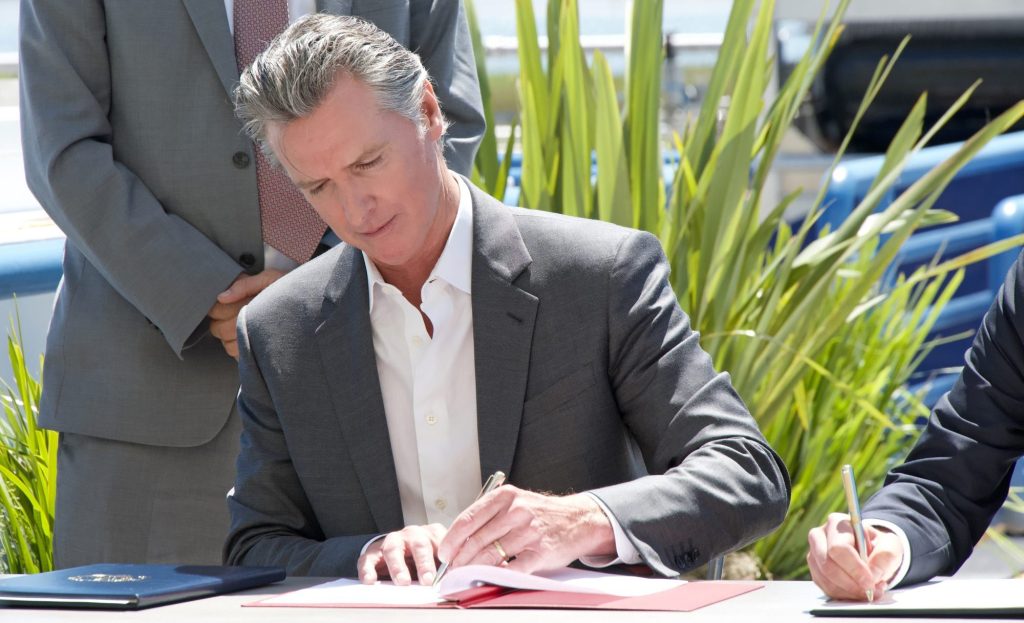California’s new laws include climate and consumer wins — and setbacks
Gov. Newsom signed clean energy and carbon storage support into law, but also rejected a forever chemicals ban and a boost for virtual power plants. Read More

- Newsom extended California’s cap-and-trade system and boosted carbon capture but also approved potential new oil drilling.
- A new law compels prenatal vitamin makers to disclose heavy metals by 2027, following similar baby-food rules.
- Vetoes of bills to boost virtual power plants and curb forever chemicals and plastic glitter frustrated environmental groups.
Of the 917 bills that reached California Gov. Gavin Newsom’s desk over the past month, 794 were signed into law.
His decisions related to energy and environmental impacts reflect contrasts. For instance, he continued the state’s cap-and-trade program while green-lighting new oil drilling and rejecting virtual power plant advancement.
As for supply chains, the passage of a requirement for companies to disclose heavy metals in prenatal vitamins contrasts with rejected proposals to ban forever chemicals in cookware and plastic glitter in personal care products.
Here are the key new laws, as well as legislation that perished by Newsom’s pen.
Signed into law
Heavy metals disclosure: In 2027, prenatal vitamin purveyors will have to detail how much lead, cadmium, mercury or arsenic appear in their supplements under Senate Bill 646, which passed without opposition. A similar metals disclosure law for baby food went into effect in January.
“Cap and invest”: Newsom refreshed California’s existing cap-and-trade program through 2045. Funds enabled by Assembly Bill 1207 and Senate Bill 840 are meant to help efforts that include high-speed rail and wildfire prevention.
Drill, baby drill? Many environmentalists decried Senate Bill 237, which eases the approval of up to 2,000 oil wells in Kern County in the south of the state, purportedly to stabilize gasoline supplies.
Carbon capture win: Senate Bill 614 creates a regulatory structure for developing underground storage and pipelines for captured carbon dioxide, ending a moratorium. It’s seen as a boost for the growing carbon capture and storage industry.
Regional power: As the federal government decimates previous support for renewable energy projects, California is expanding its role within a regional power market. Assembly Bill 825 enables the state to trade more clean energy with other Western states.
Small solar boon: Under Assembly Bill 1104, small and midsize solar developers will no longer be considered “public works” organizations, sparing them red tape around labor rules.
Electrification plans: Assembly Bill 39 requires towns above 75,000 people to detail how they will electrify buildings and EV charging systems, especially in underserved communities.
Breakthrough for in-state glass: In a challenged market for recycled glass, Assembly Bill 899 updates California’s Beverage Container Recycling law to let CalRecycle pay higher incentives to in-state manufacturers that use recycled glass.
Vetoed
Forever chemicals stay: Senate Bill 682 sought to restrict harmful perfluoroalkyl and polyfluoroalkyl substances (PFAS) in pots and pans as well as dental floss and food packaging. Newsom said the bill would harm low-income shoppers. Concerns about toxic cookware became a flashpoint last year after a scare over fireproofing chemicals in black plastic spatulas.
No-go on glitter ban: Assembly Bill 823 would have expanded the 2015 Plastic Microbeads Nuisance Law to block the sale of personal care and cleaning products containing glitter, which pollute waterways. Newsom nixed it, stating that “it may incidentally result in a prohibition on biodegradable or natural alternatives.”
RIP to VPPs: Three separate bills would have advanced virtual power plants (VPPs)— which combine distributed sources of energy, such as electric car batteries and solar panels — to shore up the state’s electrical grid. Newsom said no to all of them, citing complications with existing state rules and programs.
Thirsty data centers spared: Assembly Bill 93 would have required California to check water consumption by fast-growing data centers. But Newsom said he was “reluctant to impose rigid reporting requirements about operational details on this sector without understanding the full impact on business and the consumers of their technology.”















